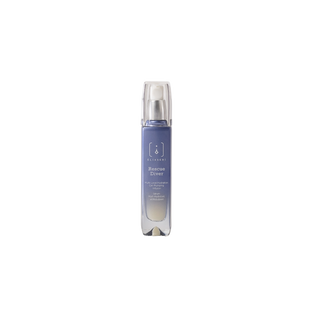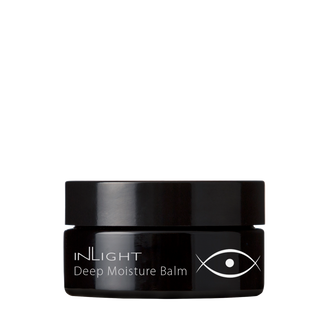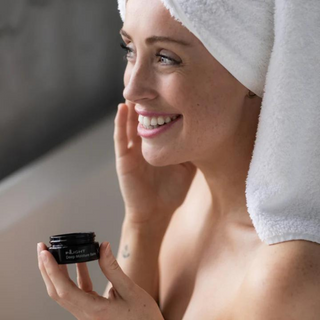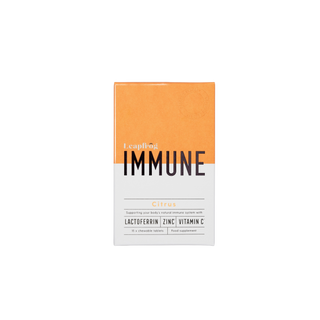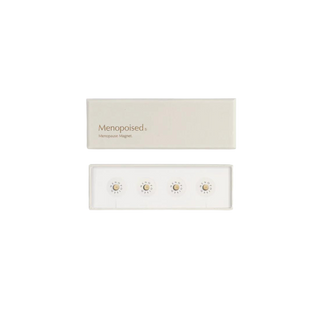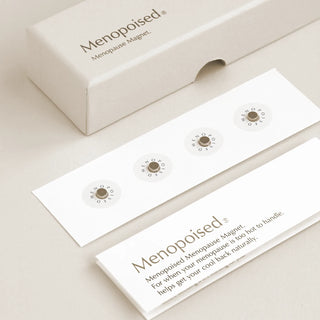Many childless older women aren’t selfish, infertile or career-obsessed – they just never met the right partner at the right time. Jan Masters has an insider’s view.
This piece is a shortened version of a feature writer Jan Masters wrote for Vogue over 15 years ago, focusing on how she felt being childless in her forties. ‘At the time, I saw it as a piece of quiet reflection,’ she says, ‘but it hit a chord with so many and I ended up being asked to write several versions for a number of newspapers, not just here but around the world. Even now, people say they still remember it.
‘In some ways, the piece is of its time, as attitudes have surely evolved over a decade and a half – women aren’t pigeonholed into careerists and non-careerists so readily and parenting now has a wider meaning,’ Jan continues. ‘The raw sadness I once experienced about not having had children still resonates with others and I know acknowledging and sharing those feelings can help a great deal – and that’s as relevant as ever.’
We couldn’t agree more, which is why we have re-run it here. Plus, we asked Jan where she is at now with this. See her response at the end of the article.

Jan Masters, writer, copywriter, shoot director and content editor.
The other night, I held Grace Ella, my friend’s new baby girl, for the first time. Her warm, silky head smelled cleanly sweet, an odour-print of innocence that I found comforting. Yet, at the same time, it triggered a rush of regrets: that I’ll never know what it’s like to give birth; never cradle a scrunchy-faced newborn as it takes its first breaths; never sew ribbons on to ballet shoes or name tags into rugby shirts, help conjugate French verbs or confiscate cheap sweets.
‘Not that, at 43, I’ve endured hope-crushing rounds of failed IVF. As far as I know, I’ve not had fertility issues. Neither did I purposely postpone pregnancy while I scaled corporate heights, shattering glass ceilings only to find I'd left it too late. Instead, my childless status has been shaped largely by circumstance. Although currently single, I’ve had my share of heart-quickening romances, a number of long-standing relationships and a short-lived marriage. I’ve just never reached the let’s-make-babies part of the journey with anyone.
"After so many years of low-level yearning, I’m ready to move on, to travel and to follow different creative paths that I couldn’t pursue if I had children, to ensure my freedom has currency in my life"
It wasn’t as if I was holding out for picket-fence perfection, but in those relationships where I would have happily had children, I sensed partners weren’t ready and I shied away from applying any pressure. I saw synchronised procreative desires as a prerequisite, so while I wanted to rock the cradle, I never rocked the boat.
‘As reasons for childlessness go, it’s been a curious one: for 15 years, I’ve been physically and financially able to have a family, sexually pursued and maternally primed. And yet, while there have been no medical consultants with strained expressions, no make-or-break procedures or no devastating miscarriages, my chance for a family has all but disappeared. It’s been like trying to grasp something underwater that in slow motion has continually eluded me, before silently slipping away. Yet, for all its impalpability, I still feel it as a loss. As one speaker said at a conference on infertility, if having a child is a major life event, often, so is not having one.
‘What’s made it more difficult to deal with is that when I’m asked if I have children and I say no, it’s automatically assumed either my ovaries have let me down or that I’m a confirmed careerist. And if I bother to explain that simply hopes and reality failed to dovetail, there’s a shifting in seats. Then it’s dismissed. And while a proportion of women of childbearing age in the UK are planning not to have children, it’s estimated considerably more will end up childless, many quietly sharing my experience.
"If you have children, don’t assume I’m uninterested – use me; I often come up with wackier ideas to entertain them because I’m not bogged down with the day-to-day stuff"
‘What is being discussed, however, is the increase in women having children in their forties, prompting three fertility experts to write a piece in the British Medical Journal entitled “Which Career First?” suggesting women, in attempting to have it all, were “defying nature” and that IVF shouldn’t lull them into a false sense of fertility. The stark advice? Get your baby-making act together earlier. It caused quite a stir.
‘Clearly, these experts were making a biologically sound point: that the easiest time to conceive is in your twenties and by 35 your fertility noticeably declines. But focusing on this “don’t delay” message neglects the point that trying to conceive later in life isn’t always about self-imposed deferral strategies, just as childlessness isn’t always an issue of infertility. “I don’t think it’s easy for everyone to follow the watch-tapping warning and get a family started in their twenties,” says my just-turned-40 friend. “Apart from anything else, most boyfriends I’ve had weren’t seriously contemplating settling down before their mid-thirties.”
‘There’s also been a huge cultural shift in women’s attitudes since my grandmother’s day – for a start, more women support themselves financially, and dating has become ever more removed from mating. I certainly never evaluated boyfriends as potential providers or fathers, and if I’m honest, I was more drawn to those wanting to trek across Tibet than take a trip to the Early Learning Centre.
"For a long time, I felt the opposite: that I had failed my healthy body, that it went to an awful lot of biological effort, month in, month out, for nought."
‘And yet, while I have male friends who, years ago, at the very suggestion of babies would have run for the hills, they are now somewhat at sea being single and childless. Maybe we could all benefit from pondering the nature of relationships and, ultimately, what we’re all seeking from them.
‘Occasionally, I’m told it’s still not too late to duck the wire and try for a baby. But I think it’s important to let go. Because after so many years of low-level yearning, I’m ready to move on, to travel and to follow different creative paths that I couldn’t pursue if I had children, to ensure my freedom has currency in my life. While women with children often say they crave time for themselves, after years of being a mother-in-waiting, I kind of do, too.
‘It’s also been crucial to thaw feelings of failure. Some who’ve had fertility problems say they can’t help being angry with their bodies for letting them down. For a long time, I felt the opposite: that I had failed my healthy body, that it went to an awful lot of biological effort, month in, month out, for nought.
‘But I remember the exact day when I started being kinder to myself. It was after watching a young girl, sitting on a step in Paris, nursing a battered, matted-haired doll. Her tenderness taught me that you can’t define maternal instincts exclusively by the presence of a living, breathing baby – and that you can always put caring to good use. It made me realise that even though I don’t have children of my own, I can always offer practical and emotional support to those who do. My only request? Please, if you can help it, avoid saying something that has been landed on me more than once; “It’s only when you have a child you experience real love.” I don’t doubt there’s truth in that, but it still feels like a hurled grenade.
‘People don’t always think. But in fairness to parents, I don’t always think either. When they ask if I have children and I say, “Unfortunately, no,” they may feel awkward and not know what to say. What I find has helped is straightforward acknowledgement. Once, when I came clean to a friend (who has four children) that occasionally I felt sad I’d missed out, she paused for what seemed like an entire school term and then replied, “Yes, it is a shame. You would have been a great mother.” It was a brave, bold, respectful answer. And it helped.
‘What’s more, as Rachel Black, who co-wrote the book Beyond Childlessness says, “All of us in the end have to face up to who we are and where we are going. For parents, that stage often comes with the empty-nest syndrome. When you are childless, you find yourself asking those questions earlier.” But her best piece of advice to me was this: prepare yourself for the question “Do you have children?” – not just for the enquirer’s sake but also for your own.
"So, this is my answer: that I never met the right man at the right time. That I’ve learnt not to concentrate on what life lacks but on what it promises."
That sometimes, baby-holding takes me on a brief diversion to never-never land, but don’t panic, it passes. If you have children, don’t assume I’m uninterested – use me; I often come up with wackier ideas to entertain them because I’m not bogged down with the day-to-day stuff. And when your kids rush to hug me, flinging arms around my waist or thrusting sticky fingers in my face, it gives me more pleasure than you’ll ever know.’
How does Jan feel about not being a mother now?
‘Looking back, when I opened up about my feelings of loss being childless all those years ago, I also said I was ready to move on. Just after this piece and others like it were appearing, I decided to take myself off to see a ballet at the Royal Opera House. That night, I met my future husband, who was also there by himself. We’ve been married for 12 years now, so the “right” partner did come along – and maybe, who knows, at the right time.
‘I did fulfil my wish to experience other countries and cultures, mainly through travel writing and photography. I’ve captured images of icebergs in Antarctica, the steppes of Outer Mongolia, met the most fascinating people in Papua New Guinea and Japan, and trekked to see the mountain gorillas in Rwanda. I’ll always be truly appreciative of those incredible opportunities.
‘More recently, we adopted a very energetic puppy who didn’t sleep well at night for months – it may sound a silly comparison, but she was so dependent on me, even when I hadn’t slept properly for ages, that the experience made me triply respect the incredible work parents put in to care for a baby, and not just for a few months but for many years.
‘I’ve also become a godmother to my younger friend’s daughter, which is a joy, and rather fitting because I might as well admit it – I’ve always been a little bit “away with the fairies”!
Jan Masters for Onolla



